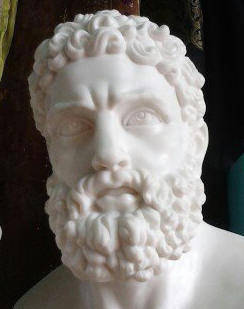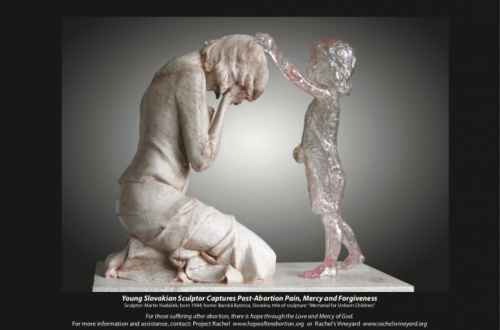
What Did the Philosophers Know and When Did They Know it? Part 1
“I should be much more afraid of being mistaken and then finding out that Christianity is true than of being mistaken in believing it to be true” (Blaise Pascal).[1]
While revisiting a book entitled “The Great Philosophers: From Socrates to Foucault”, a short synopsis of many of the best known philosophers, I was struck by thoughts of meaninglessness. For thousands of years philosophers have been discussing questions like, “How do we know what we know?” “How can we know anything?” “How do we know we exist?” etc. What futility it is not to believe in God and to disbelieve in the possibility of life after death, to believe everyone eventually dies, all stars burn out, and dead matter inhabits space forever after that. As a philosopher 500 years before Socrates said when he viewed everything that was said and done under the sun:
“Meaningless! Meaningless!” says the Teacher. “Utterly meaningless! Everything is meaningless” (Ecclesiastes 1:2, NIV).
This the picture of man in all his wisdom, without God.
But in reading this book, in reading the ideas and words of some of the great philosophers, whether atheist or theist, I still saw rays of light in many of the ideas, gleaming golden rays of truth finding their way through the closed shutters. Certainly, it may be that I misunderstand some of the ideas they tried to convey, but their ideas none-the-less became a launching pad for my own thoughts and observations, which are as follows:
Socrates had this interesting idea that we do wrong because we find the wrongdoing beneficial to us in some way. It is an idea which many others have built upon, that no one does evil purely for evil’s sake, but they do evil because they see it as a “good” for themselves. As one of my favorite thinkers has written,
“You can be good for the mere sake of goodness: you cannot be bad for the mere sake of badness. You can do a kind action when you are not feeling kind and when it gives you no pleasure, simply because kindness is right; but no one ever did a cruel action simply because cruelty is wrong—only because cruelty was pleasant or useful to him. In other words badness cannot succeed even in being bad in the same way in which goodness is good. Goodness is, so to speak; itself: badness is only spoiled good. And there must be something good first before it can be spoiled.”[2]
So which came first, the chicken or the egg? I say the chicken. Which came first, goodness or evil? I believe the idea above points to the truth that Goodness preceded and precedes evil. This would underscore the foundational truth for all Theism: “In the beginning God” (Genesis 1:1, see also John 1:1).
But perhaps I’ve gotten ahead of myself.
Next I read Plato’s idea that an unchanging standard would be needed for definitions, comparisons, and judgments. To speak of chairs, or to call something a chair, or to say something is a good or a bad chair, would be to have an understanding (a standard) of what a chair is or is not. And to say that anything is good or evil, right or wrong, moral and immoral, or even to speak of “moral progress”, would mean that we have an understanding, a standard, against which we measure. These standards cannot be relative or subjective, defined by individual societies or people, because there would then be no ability to judge at all. There is no right, wrong, good, bad, progressing or regressing, etc. without an unchanging standard.
Consider this: How could a person, society, or humanity progress morally if morality changes, if it is being discovered as we “evolve”, or if we are simply taking a majority vote each generation? Recall the game we played as children, the one in which we told a person whether they were getting “hot” or “cold” as they searched for something. What sense would it make if the object for which they searched was always in motion or did not exist? Some think we are moving along a track, trying to overtake the train of morality that is running on ahead of us. How does one know it is ahead? Many believe it is behind and we have been moving away from it. Perhaps a reverse course is needed. Many claim that previous generations were very wrong about their moral understandings, but those generations thought they were on the right track, too. Many today claim that those in the past were victims of the times and prejudices of the day and could not see or understand rightly. Why would this generation believe themselves exempt from the cultural and chronological follies common to mankind? As a Christian, I believe there is a morality, a good, an unchanging standard above all generations, societies, and individuals, one to which we will all be called to account because we knew it full well and suppressed it (Romans 1:18, etc.).
Fixed standards are needed or, again, “everything is meaningless.” Even if we don’t admit it, there is something within each and every one of us that knows there are fixed standards and we appeal to them all the time: “That’s not fair.” “How can they get away with that?” “They’re not playing by the same rules.” “There needs to be a level playing field,” etc. And so it is good to find that the original Goodness, the in-the-beginning-God, has communicated the fixed standards to us (see, for instance, Deuteronomy 5, Matthew 5:17-48, Matthew 22:34-40, etc.).
Still not convinced?
Following on the heels of Plato’s idea is Rousseau’s interesting assessment that as mankind “progresses” (or should we say “grows”) in knowledge and creativity, mankind also regresses morally. It seems that every new scientific discovery, technology, invention, or understanding finds special application for our ability to harm one other, to isolate ourselves and avoid one another, or to make us more self centered. (And, of course, everything new has some kind of pornographic application.[3]) As it has been said,
“[They] invent ways of doing evil” (Romans 1:30, NIV).
We also see the sad state of mankind described by Machiavelli and Thomas Hobbes. Machiavelli writes that, “there is such a gap between how one lives and how one ought to live…”[4] (“Ought” once again assumes an understood fixed standard within, applicable to all.) He tells us that people are “ungrateful, fickle, simulators and deceivers, avoiders of danger, greedy for gain”[5] while Hobbes, according to the authors, tells us that “People in the state of nature become enemies as surely as physical objects obey certain laws of motion…. The natural condition of human beings, that is to say, ungoverned human beings, is war”.[6] Allow me to add my observation that the state of governed human beings is also war. As Cornelius Plantinga, Jr. has written, human beings have an “empirically demonstrable bias toward evil. We are all both complicitous in and molested by the evil of our race. We both discover evil and invent it; we both ratify it and extend it.”[7]
Machiavelli and Hobbes, certainly not Christians, were saying the same things that the Apostle Paul had said more than a thousand years before:
“People will be lovers of themselves, lovers of money, boastful, arrogant, blasphemers, disobedient to their parents, ungrateful, unholy, unloving, irreconcilable, slanderers, without self-control, savage, opposed to what is good, treacherous, reckless, conceited, loving pleasure rather than loving God” (2 Timothy 3:2-4).
Paul wrote that all of us are “cut from the same cloth” (so to speak):
“For we too were once foolish, disobedient, misled, enslaved to various passions and desires, spending our lives in evil and envy, hateful and hating one another” (Titus 3:3).
But then Nietzsche solved the world’s problems by introducing his “God is dead” worldview which, he believed, was the opening of a new horizon of expectation, freedom, and joy. How did it work out for the millions who lived in the societies that canonized Nietzsche? “[We] failed to ask what might happen if people did not want to have their faith eliminated,” writes Alister McGrath. “After all, a desire to eliminate belief in God at the intellectual or cultural level has the most unfortunate tendency to encourage others to do this at the physical level.”[8] Nietzsche’s “freedom” became gulags, concentration camps, and mass murder on a scale never before seen in human history. Joy became oppression and misery. The expectation on the horizon was… Death. After all, if God is dead, so are any true standards of right and wrong, no matter how much the socialists, communists, atheists, and secular humanists try to pretend it is not; we come back to society-says law and a bunch of mumbo jumbo explanations as to “what is best for society” while those who disagree, those who are hindering “progress” and the arrival of utopian society need to be “re-educated”[9] or systematically wiped out. “Atheism argued that it abolished violence and tyranny by getting rid of what ultimately caused it: faith in God. It was a credible claim in the nineteenth century precisely because atheism had not yet enjoyed the power and influence once exercised by religion. But that has all changed.”[10]
And so the philosophic pendulum swung back again and Immanuel Kant put forth the idea that moral law is, or at least should be, universal, expressed in his “categorical imperative” which would be a single rule to which all of life could be applied: “Act only according to that maxim whereby you can at the same time will that it should become a universal law without contradiction.” This is, of course, not too far from “Do unto others as you would have them do unto you” (see Luke 6:31, NIV); yet still, in the world of Kant, the categorical imperative appears to set reason on a throne above the in-the-beginning-God and Lawgiver.
Then I read about John Stuart Mill, who appears to be one of the first proponents of the modern West’s favorite philosophies of life (or one of them): “Do what you like, so long as you’re not hurting anyone else”, which embraces a willful blindness which denies the interconnectedness we have with those around us. As John Donne wrote, “No man is an island, entire of itself; every man is a piece of the continent, a part of the main. If a clod be washed away by the sea, Europe is the less… any man’s death diminishes me, because I am involved in mankind, and therefore never send to know for whom the bell tolls; it tolls for thee.” It should be obvious to all that if we hurt or destroy even ourselves (and we know that even pleasures can be self-destructive and deadly), others will certainly be impacted. And since each of those effected persons affects the lives of other persons, well, our ability to impact and hurt others becomes legion. We are the proverbial pebble thrown into the pond. Mr. Mill, it’s too bad that you did not heed the words of Scripture:
“Do not deceive yourselves. If any one of you thinks he is wise by the standards of this age, he should become a ‘fool’ so that he may become wise. For the wisdom of this world is foolishness in God’s sight. As it is written: ‘He catches the wise in their craftiness’; and again, ‘The Lord knows that the thoughts of the wise are futile’” (1 Corinthians 3:18-20, NIV).
In William James’ pragmatism I read that truth should be of such a nature that it should not only correspond to real life, that it “should be consistent with other ideas”,[11] but also that it should make a difference in our own life/lives; it should move us toward a better life. Without a doubt, this is one of the main reasons I believe that Christianity (in its proper form) is the Truth encompassing all truth. (As Jesus said, “I am the way, and the truth, and the life”—John 14:6—“In fact, the reason I was born and came into the world is to testify to the truth. Everyone on the side of truth listens to me”—John 18:37, NIV.)
Does Christianity correspond to real life? Some accuse it of being mythological or made up. Well, one should examine, perhaps, the linchpin of Christianity, the resurrection of Jesus,[12] to see if there is any validity to it. Christianity has withstood every kind of scrutiny and attack, and the resurrection has converted many who have investigated it.[13]
One of the main reasons I believe that Christianity is Truth, encompassing all reality, is that Christianity explains the most important questions and generally does so satisfactorily. It diagnoses and addresses the problem we find in the world and in our hearts. It answers the questions that science cannot answer: Why are we here? What is the meaning of life? Does my life have purpose? Is there life after death? Christianity does not ignore the deepest questions, nor does it ignore our deepest longings. It holds out hope to the hopeless, forgiveness to the unforgivable, love to the unlovable. It says that what we see is not all there is, and the way things are, well, it is not the way things are going remain. It even answers our strange desires for that which will never change, decay, or die, our desire for perfection, our desire to embrace beauty (even inanimate beauty), and our desire to live forever. To me this underscores that Christianity not only corresponds to reality, but it is the most coherent belief system available.
But is Christianity consistent with other ideas? As C.S. Lewis wrote, when comparing the scientific worldview to the Christian worldview:
“If… I swallow the scientific cosmology as a whole, then not only can I not fit in Christianity, but I cannot even fit in science. If minds are wholly dependent on brains, and brains on biochemistry, and biochemistry (in the long run) on the meaningless flux of atoms, I cannot understand how the thoughts of those minds should have any more significance than the sound of the wind in the trees. And this to me is the final test. This is how I distinguish dreaming from waking. When I am awake I can, in some degree account for and study my dream…. But while in the [dream] I could not have fitted my waking experience. The waking world is judged more real because it can thus contain the dreaming world; the dreaming world is judged less real because it cannot contain the waking one…. Christian theology can fit in science, art, morality, and the sub-Christian religions. The scientific point of view cannot fit in any of these things, not even science itself.”[14]
But let us ask if Christianity is pragmatic, making a difference in our lives and moving us toward a better life? Absolutely, that is why the Bible speaks of us becoming new creations (2 Corinthians 5:17), of being set free from the law of sin and death (Romans 8:2) because of Jesus Christ. Christianity is not, as some badly misinformed Christians seem to think, just some kind of life-after-death insurance policy that completely overlooks this life. No, it’s about God’s reconciliation and restoration of the human race, beginning in the individual human heart (Ezekiel 11:19, etc.). Restoration in Christ is the promise of freedom for the captive, sight to the blind, hope for the hopeless, abundant life, and joy (see Luke 4:18-21, John 10:10, John 15:10-12, Galatians 5:19-23). In the beginning we lost paradise and were banished from Eden (Genesis 3:23-24). In the end God will restore it (Revelation 21:1-8, 22:1-3). Knowing and experiencing these things frees us to change the world, one person at a time (John 13:34, see Matthew 25:31-46, James 2:14-26, etc.).
I have more observations to make, but I will save them for the follow up column.
To read more of my columns go to: https://blogs.bible.org/author/stephen-j-drain/
[1] The original version of this essay was published on another web site on November 21, 2014.
[2] C.S. Lewis, “Mere Christianity”, copyright 1943, 1945, 1952 by MacMillan Publishing Company, a division of MacMillan Inc., copyright renewed 1980 by Arthur Owen Barfield, page 50.
[3] “Everyone now has a home computer!” “Great, we can all now access porn at home.” “We can now do almost anything on our phones!” Great, now Playboy is launching a phone ap.” “Our robotic technologies are advancing exponentially.” “Great! Sex robots will be for sale soon.” Jesus said to his disciples: “Things that cause people to sin are bound to come, but woe to that person through whom they come” (Luke 17:1).
[4] “The Great Philosophers: From Socrates to Foucault”, copyright 2005 Arcturus Publishing Limited, 2006 Barnes & Noble Books, page 30.
[5] Ibid.
[6] Ibid, page 38.
[7] “Not the Way It’s Supposed to Be, a Breviary of Sin” by Cornelius Plantinga Jr., copyright 1995 Wm. B. Eerdmans Publishing Co., page 26.
[8] Alister McGrath, as found in “Beyond Opinion”, copyright 2007 by Ravi Zacharias (author and general editor), published by Thomas Nelson, page 29.
[9] See also “ordered to undergo sensitivity training”, etc.
[10] Alister McGrath, as found in “Beyond Opinion”, copyright 2007 by Ravi Zacharias (author and general editor), published by Thomas Nelson, page 29.
[11] “The Great Philosophers: From Socrates to Foucault”, copyright 2005 Arcturus Publishing Limited, 2006 Barnes & Noble Books, page 115.
[12] See my three columns of the Resurrection of Jesus Christ, here, here, and here.
[13] I suggest reading any of the following: “The New Evidence That Demands a Verdict” by Josh McDowell, “Who Moved the Stone?” by Frank Morrison, “The Case for Christ” or “The Case for Faith” by Lee Strobel, “Testimony of the Evangelists” by Simon Greenleaf, “Observations on the History and Evidence of the Resurrection of Jesus Christ” by Gilbert West, or even “Miracles” or “Mere Christianity” by C.S. Lewis, etc.
[14] “The Weight of Glory and Other Addresses”, copyright 1949, C.S. Lewis Pte. Ltd., copyright renewed 1976, revised 1980 C.S. Lewis Pte. Ltd., published by HarperCollins, pages 139-140.




2 Comments
konroh
Excellent assessment. I’ve heard of the fallacy fallacy, which is the fact that all the philosophers debunk the previous generation, when we look at all of philosophy it’s nothingness without resting on God.
Well written, thank you.
J Drain
You are correct, it is Ecclesiastes: “Meaningless! Meaningless! Everything is meaningless…” without God.